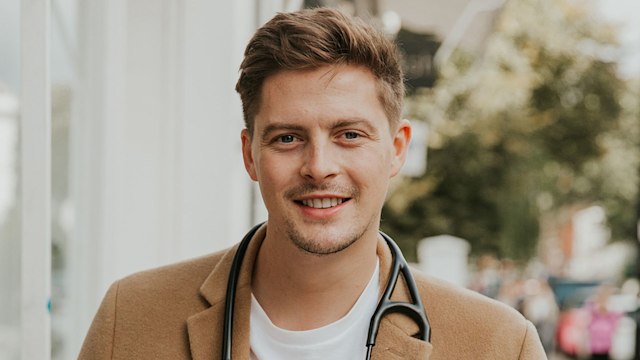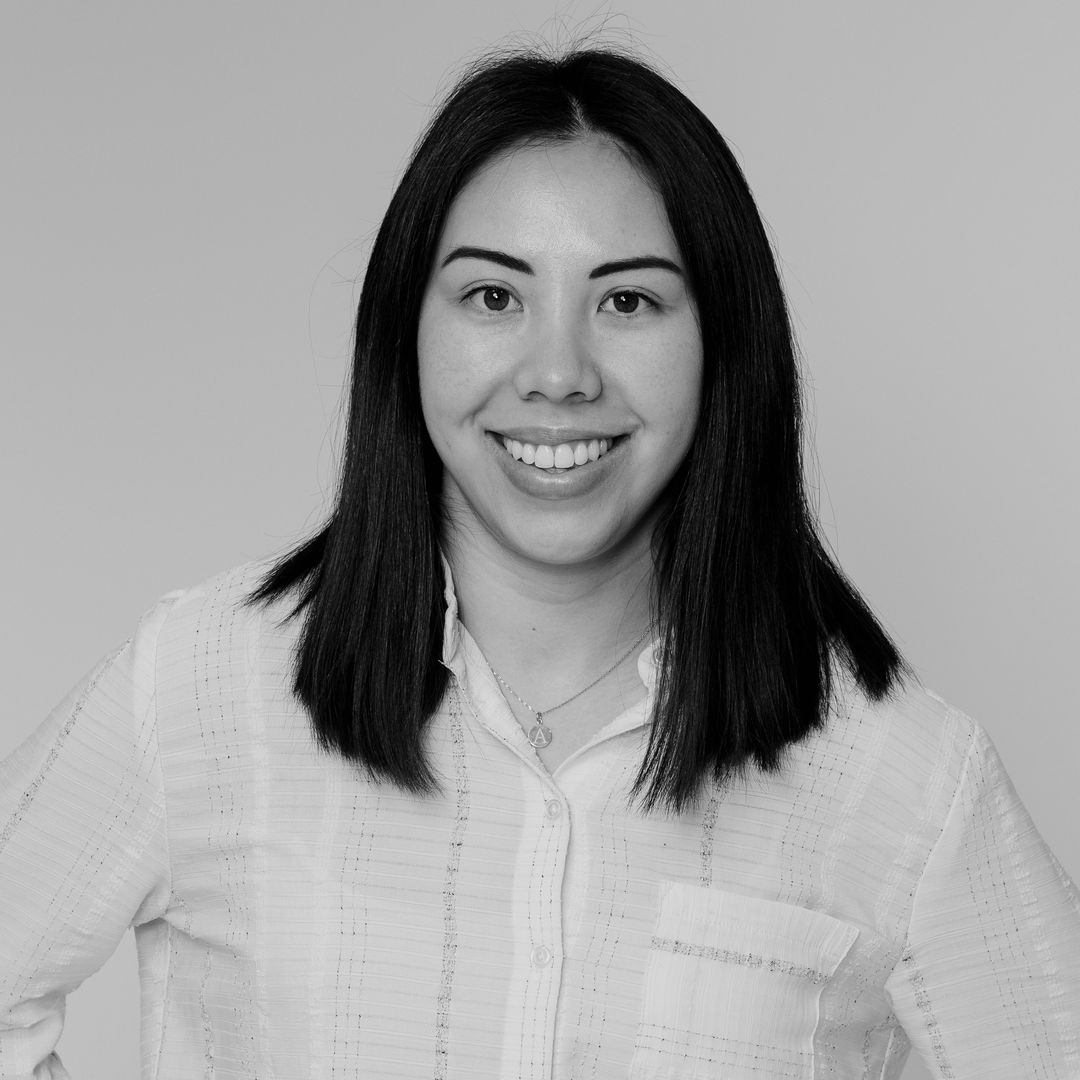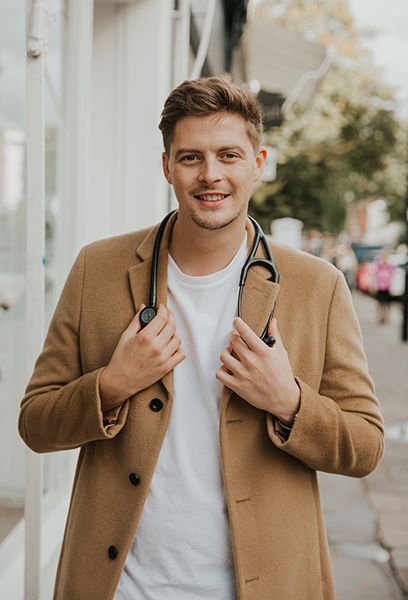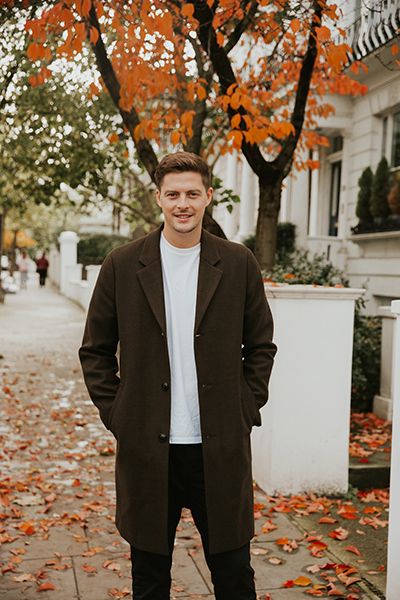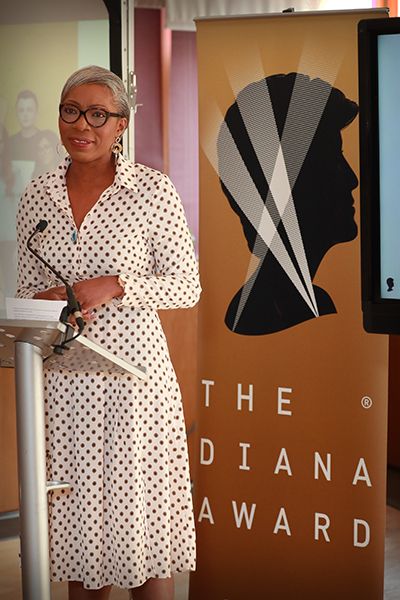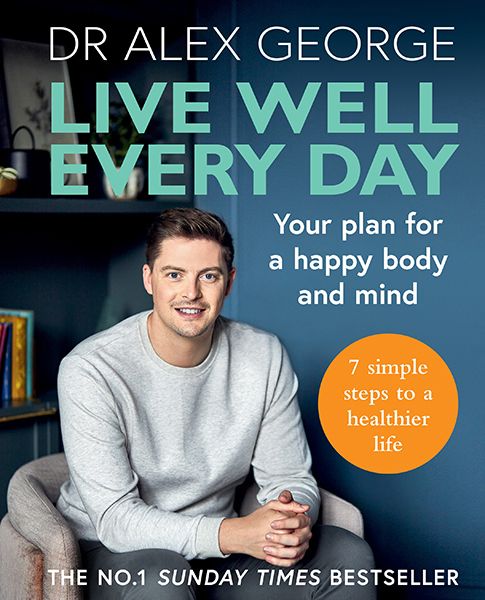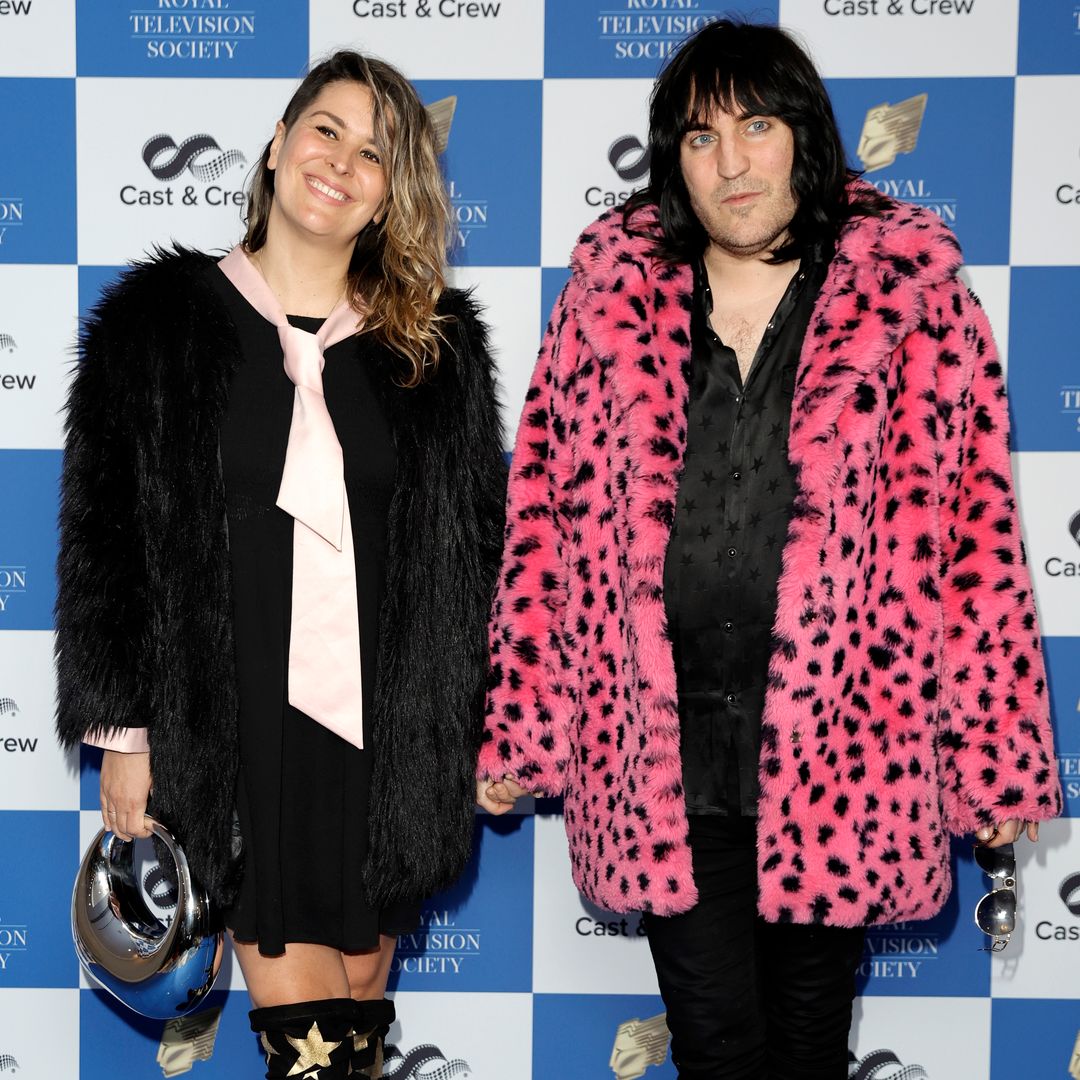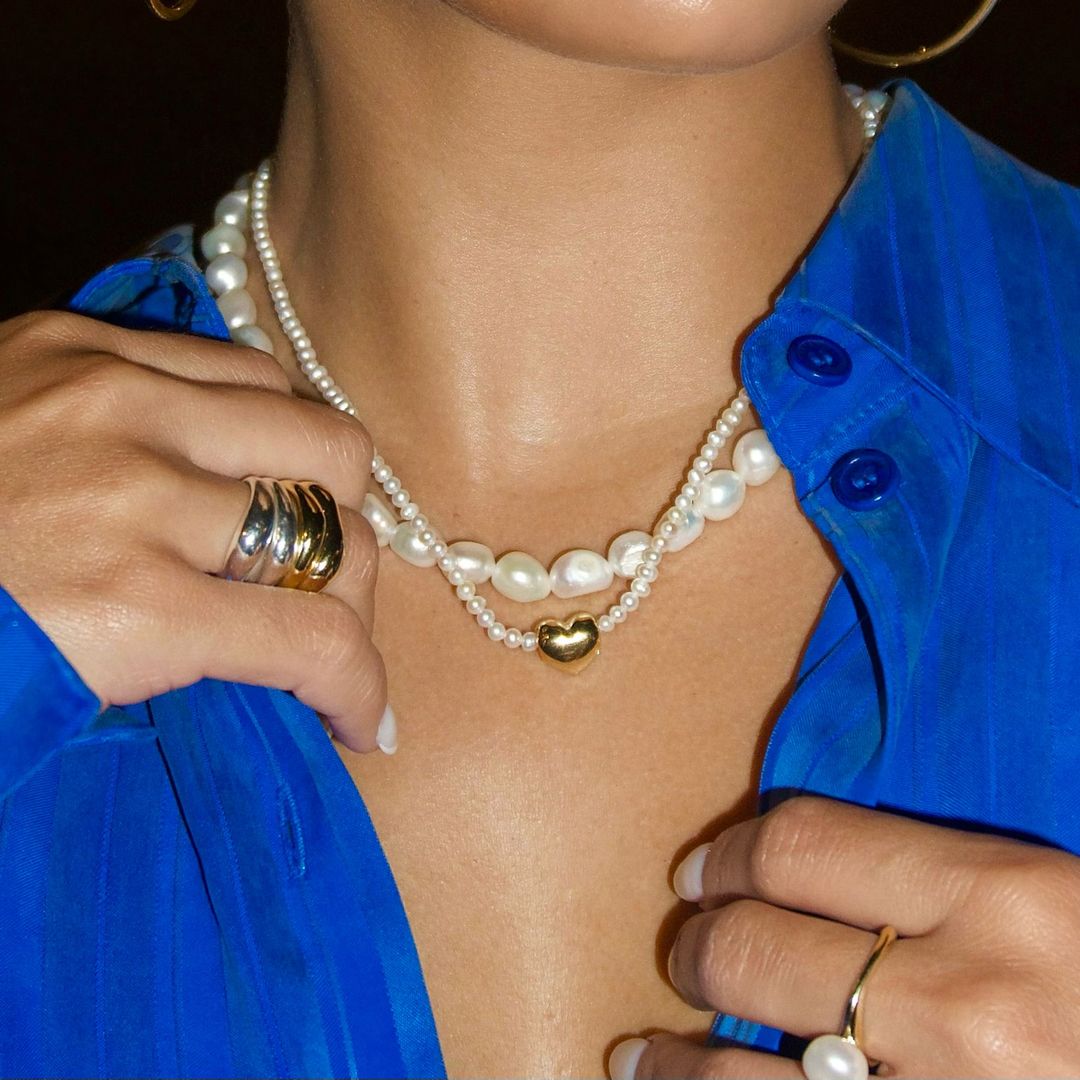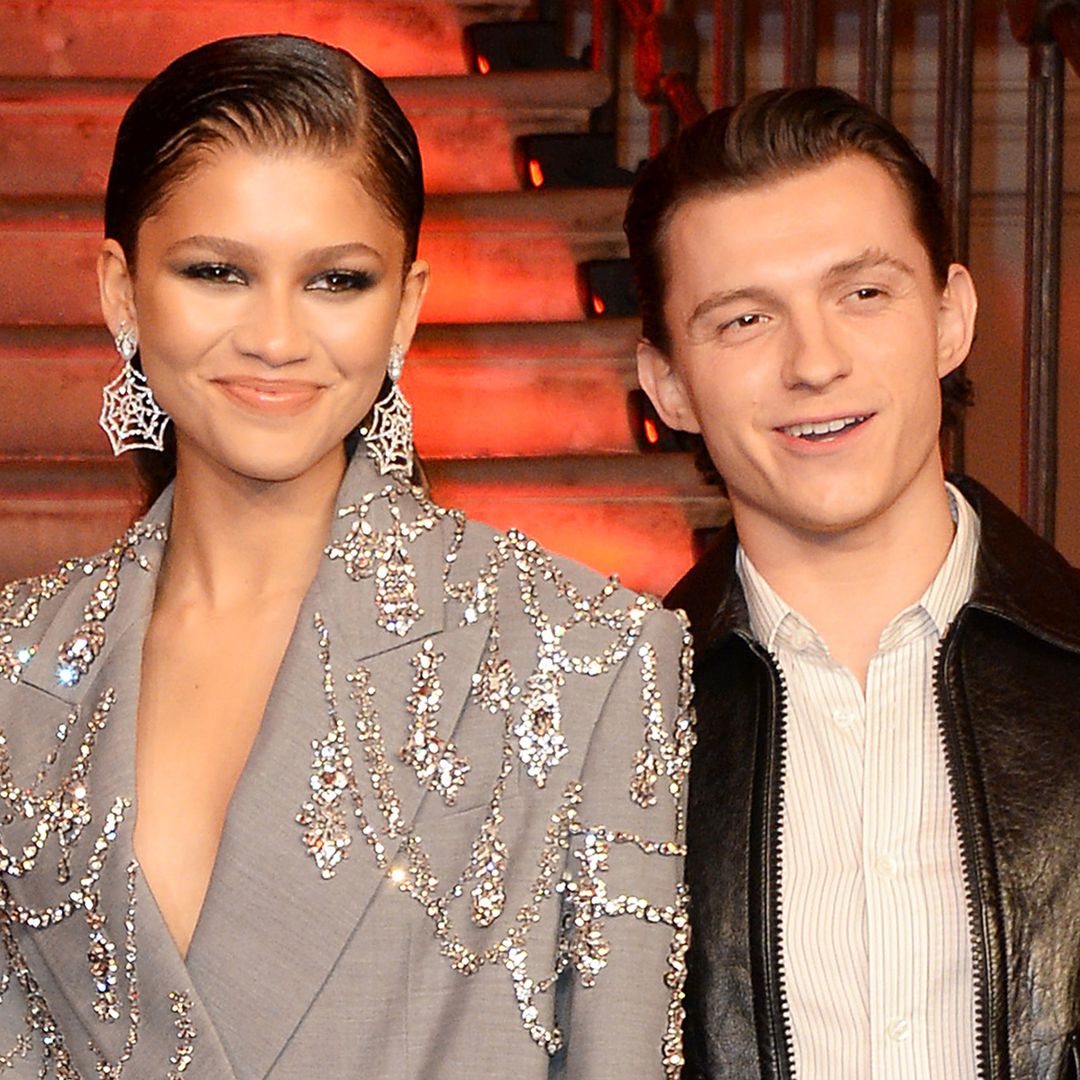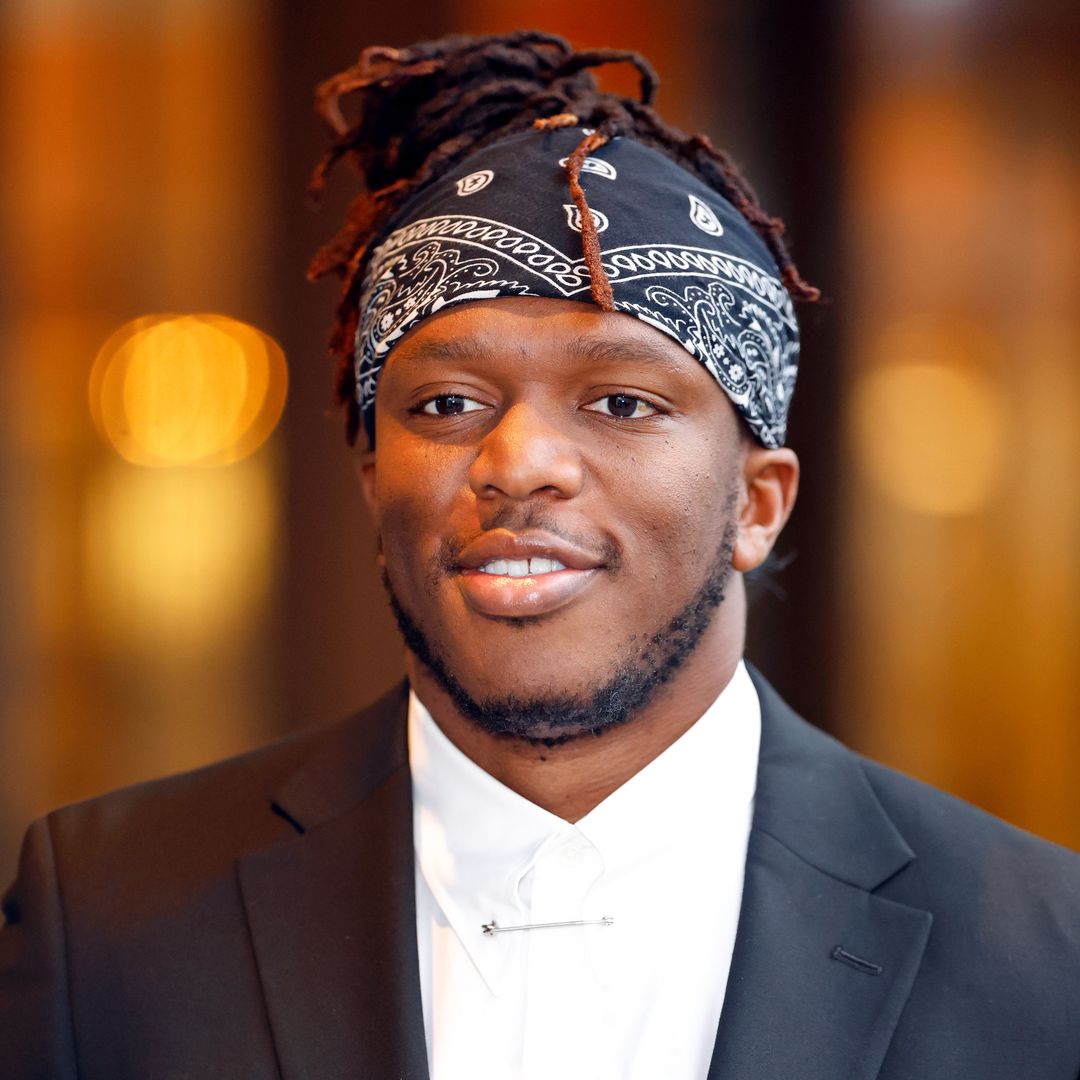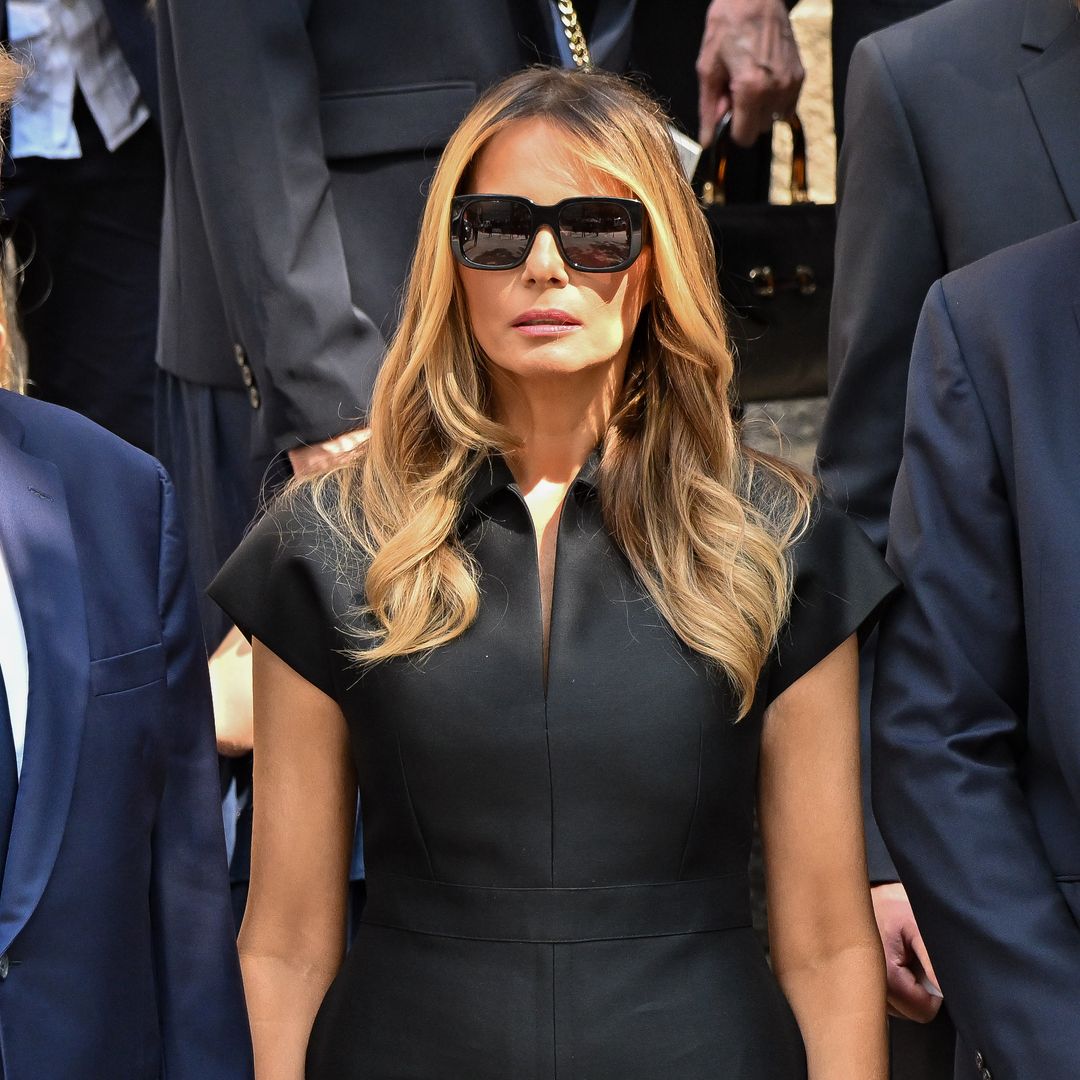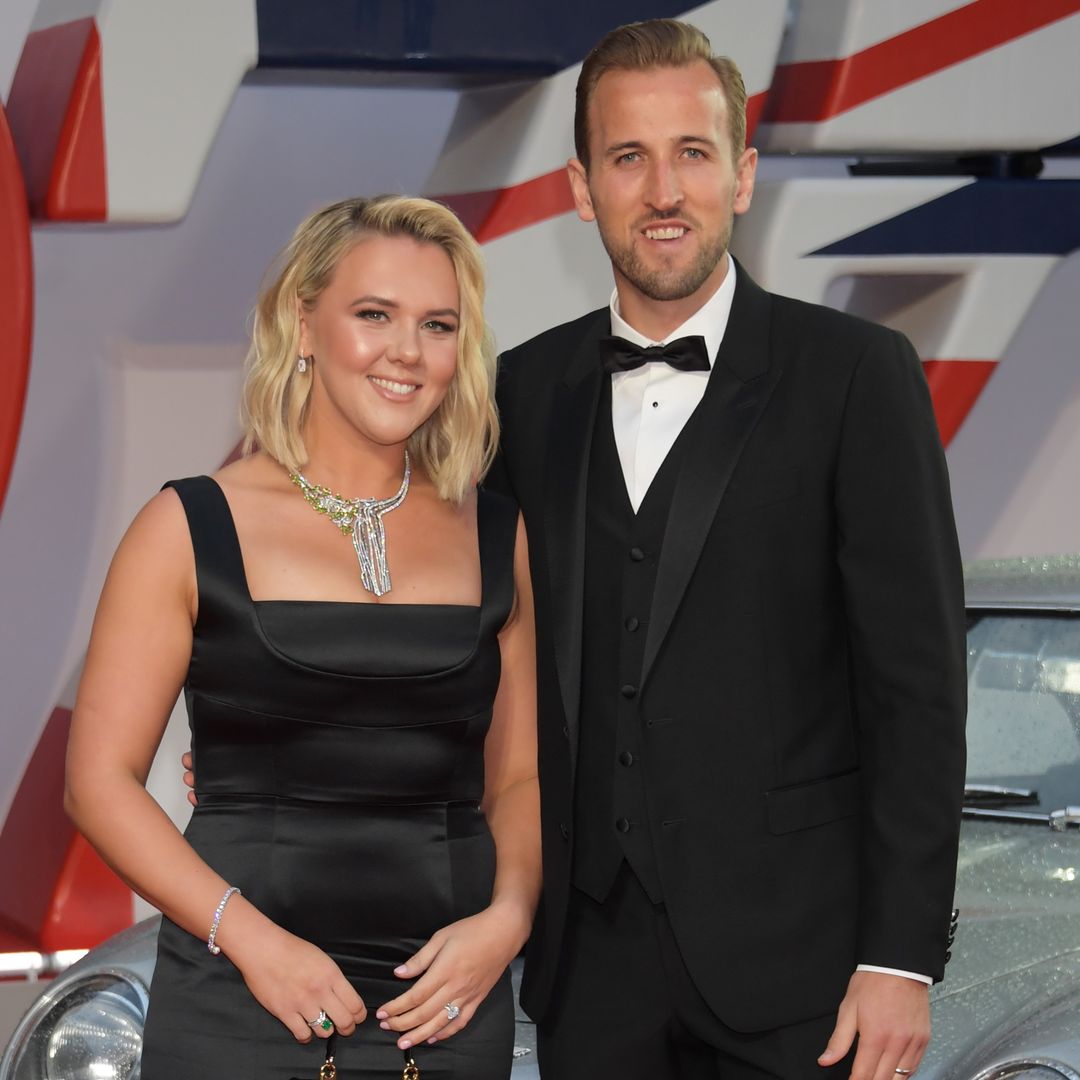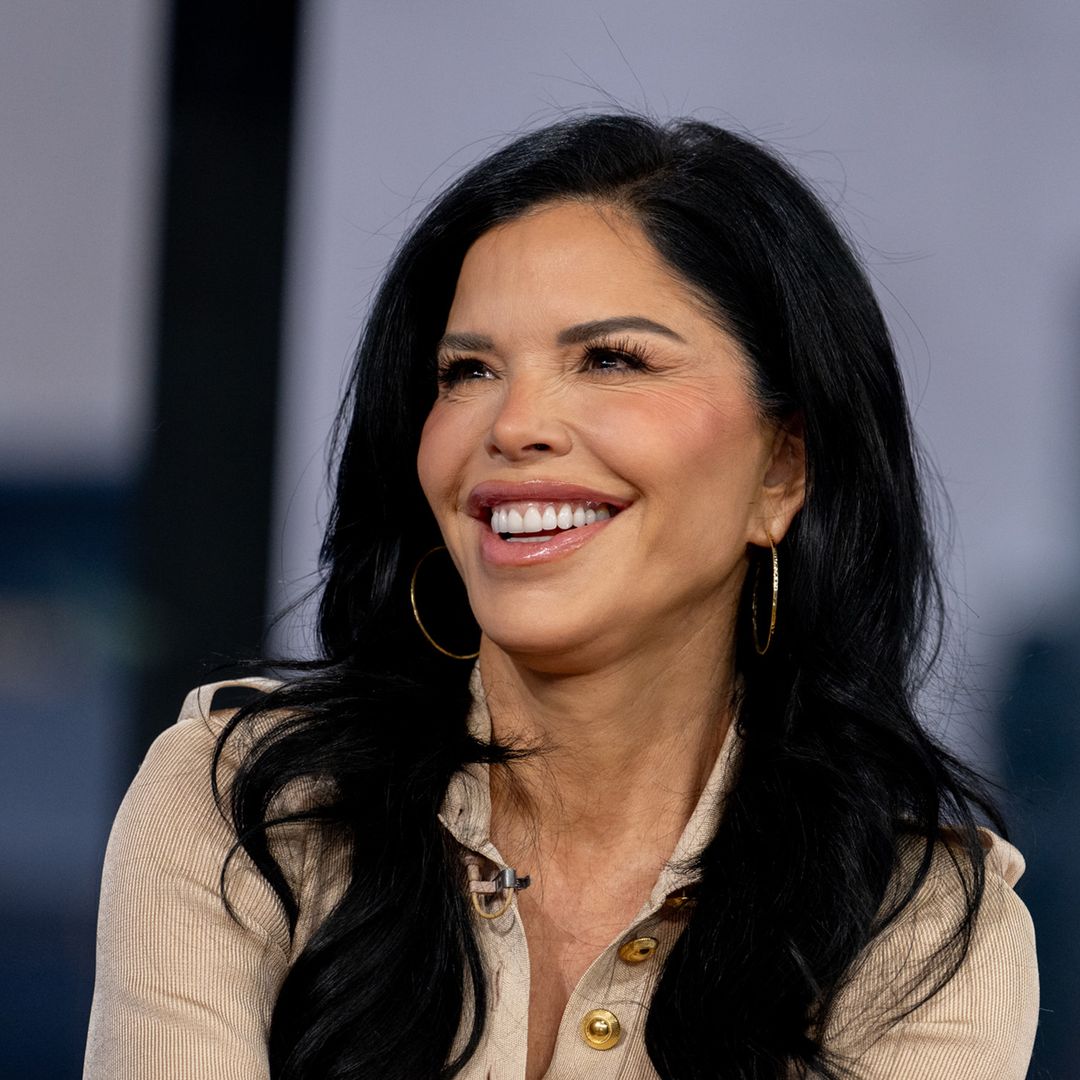When we were compiling our Back to School digital issue which was guest-edited by Giovanna Fletcher, we felt it was essential to raise the topic of bullying. Half of young people are being bullied at present or have been in the past – a staggering statistic.
Dr Alex George and Tessy Ojo CBE, chief executive of The Diana Award, were the perfect pair to approach thanks to their expertise in mental health and their passion to stamp out bullying.
READ: Giovanna Fletcher on mum guilt, meeting Kate Middleton and juggling work with raising her three sons
As CEO of The Diana Award, the only charity set up in memory of Princess Diana, Tessy campaigns for kindness, positive change and anti-bullying. Earlier this summer, Dr Alex publicly backed the charity's Don't Face It Alone campaign in his new role as UK Youth Mental Health Ambassador, in a bid to encourage young people to speak out about bullying.
WATCH: Dr Alex reveals how bullying affected his mental health
With a thriving medical career, two million Instagram followers and the confidence to star in reality TV show Love Island, it's hard to believe that Dr Alex was once a victim of bullying.
But he admits: "I really believe that bullying is a huge issue for our generation now, as well as in the past. I was bullied in school and that certainly impacted my school experience, my mental health and my education. And it's something that we can't hide away from anymore. To make matters even worse, the bullying you face in school is then extended to the same bullying that's happening online."
EXCLUSIVE: Princess Beatrice on homeschooling her stepson, her unborn baby and why having dyslexia is a 'gift'
Dr Alex and Tessy took part in an exclusive video call to discuss what children can do if they're being bullied, the role parents and teachers can play, and why we need to put an end to the notion that bullying is "character-building". Watch the video above and read their exclusive interview below.
"Bullying isn't character-building," says Alex. Copyright: Jessie Whealey
Tessy: Dr Alex, what would you say to a young person who is being bullied now and struggling?
Dr Alex: "First of all, please don't think that you have to face it alone. I hear a lot of people say, 'I feel ashamed, I don't want to talk about it, if I speak to someone, it won't stop, it won't fix it anyway.' Actually, you shouldn't be ashamed. Don't feel there's something wrong with you. Please don't accept it.
"Speak to family, speak to friends, speak to your teachers. If you want to get more advice on how to tackle it then go online to The Diana Award and see what fantastic resources they have. Speak to professionals as well. There are some amazing organisations who support people struggling with mental health like the Samaritans. But also, your GP, your local health practice. If you don't speak to people, if you don't seek that help, then often you just stay in that rut. So it's really important to reach out and get that support."
READ: Heavily pregnant Alex Jones reveals how labour won't stop her taking her son on first day of school
Alex was bullied for two years at school. Copyright: Jessie Whealey
Tessy: When I was young, I was often told that bullying was 'character-building'. What advice would you give to parents whose children are being bullied?
Dr Alex: "Bullying certainly isn't character-building. When I was younger, I was told to toughen up and stop being a cry baby. And I think we are seeing a change in attitude around that, but some of that does still exist. And we know that that can be very harmful to young people's wellbeing.
"For parents, I think it's important to have a really open dialogue with your children about what they're experiencing, what their friendship groups are, and noticing behaviour changes – are they coming home and being very quiet? Are they doing less of their hobbies? Are they not sleeping or eating as well?
"When I was younger, because there was that element of shame around it, I didn't want to speak to my parents because I thought they would see it as a weakness. So I think parents should say to their children, 'If people are bullying you, it's not acceptable and we don't think it's acceptable and we're on your side.'
READ: Andrea McLean's top tips for stressed-out parents and why 'me time' isn't selfish
"On the other hand, I know some young people – and I certainly did when I was being bullied – I worried about talking to my parents because I thought they were going to wade in and go too far. I think it's about being clear with young people that we can decide a plan of action together, and we'll only do what you're comfortable with.
"And it's the same with mental health as much as it is with bullying. If you've got someone struggling with mental health, you need to work within what they feel comfortable doing. You might think the answer is this, but really you need to work as a team to decide the way out. And ultimately, that will keep that young person engaged and feeling that they're in control."
Tessy is chief executive of The Diana Award
Tessy: As a parent, I always ask my children, 'How do you want me to support you?' Because I don't want to make the situation worse. How did you deal with your school bullies?
Dr Alex: "I remember the time that I decided enough is enough. I was getting really sick about being bullied. I spoke to teachers at my school and my friends. The thing about bullying is that sometimes it can be very isolating, and sometimes your friends don't even know you're experiencing it.
"We all dealt with the issue, and my teachers were amazing. In the end, it was a sit-down conversation with the people who were bullying me and saying, 'What's going on? Why are you doing this?' And the teachers dealt with it in a very controlled way. In the end, the bullies apologised for their behaviour. In some ways, they didn't even realise the harm they were doing.
"And from then on, it changed. It changed my life. I actually looked forward to going to school and learning. I think there is always hope for change. You don't have to stick with it forever. Just because it's like that now, it doesn't mean it's acceptable or will stay that way. And actually, you might even have a reasonable relationship with your bullies afterwards. It's amazing that when people understand about the harm they're doing, a lot will say, 'I didn't realise I was doing that really.'"
READ: Day in the Life of a very busy dad... how Ore Oduba handles it all
Live Well Every Day, £15, Amazon
SHOP NOW
Tessy: What were your favourite and least favourite parts of school?
Dr Alex: "The least favourite thing was probably the bullying because it really, really affected my enjoyment at school for about two years. I found it really tough. And as someone who's introverted, it really added to that.
"But on the positive side, and slightly odd, but I loved the people. I loved being with my friends and the teachers. I've got amazing teachers and people that I'm very grateful for – for the things they did and the values they instilled in me.
READ: Sarah Ferguson shares emotional memory from Princess Eugenie's first day of nursery
"And I love education. I really enjoyed my school life. I want people to enjoy learning because it's amazing. I still love learning now. I want people to go to an environment that is safe and welcoming. Bullying is a big barrier to that, so let's tackle it. With the work that The Diana Award does and my new role as youth mental health ambassador for the government, I hope we can really reach a lot of people and ultimately help people who have been bullied to understand that they don't have to face it alone. They don't have to accept it, and it's never okay."
Youth charity, The Diana Award, runs several anti-bullying initiatives throughout the year, including their Back2School campaign in partnership with Nationwide Building Society. Dr Alex George, alongside the UK Government and tech community, backed The Diana Award's 'Don’t Face It Alone' campaign earlier this year to encourage young people to speak out about bullying.
Visit antibullyingpro.com for free resources, support and further information on all of The Diana Award's anti-bullying initiatives.
Like this story? Sign up to our newsletter to get other stories like this delivered straight to your inbox.
HELLO!'s selection is editorial and independently chosen – we only feature items our editors love and approve of. HELLO! may collect a share of sales or other compensation from the links on this page. To find out more visit our FAQ page.
